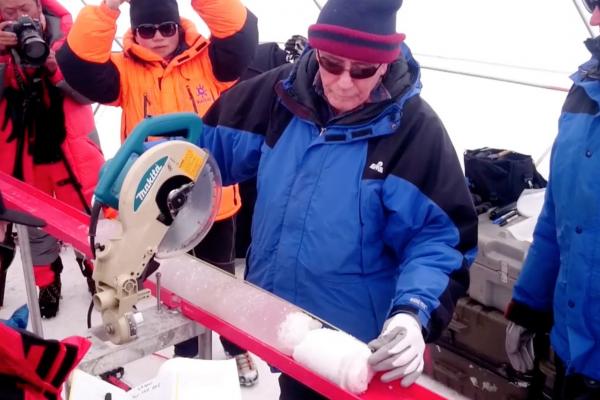Glacial ice will likely hold records of the COVID-19 pandemic, researchers say

Studies show evidence of previous pandemics, disasters throughout history
This story originally appeared in Ohio State News on May 07, 2020.
By Laura Arenschield
Ice from glaciers around the world, undisturbed for centuries, show changes in how societies functioned throughout history – and will likely hold a record of the current impact of the COVID-19 pandemic for future generations.
The story of how the pandemic is affecting societies around the world is still unfolding, but ice accumulating on high-elevation ice fields around the world, as well as in Greenland, is almost certainly collecting physical, chemical and biological evidence of this time, said two researchers who have devoted their professional lives to studying ice.
“These records will be locked into the ice and preserved,” said Lonnie Thompson, distinguished professor of earth sciences at The Ohio State University and a senior research scientist at Ohio State’s Byrd Polar and Climate Research Center. “And that means that 100 or 200 years from now, that ice will be showing anything that is in the atmosphere now, and that will tell future generations about what is happening now.”
There are signs already that the current COVID-19 pandemic is affecting Earth’s atmosphere: As people stayed home and drove less, nitrogen dioxide and sulfur dioxide levels dropped over China and throughout much of the United States. Both are potent pollutants that primarily form by burning gas and oil – the fossil fuels that power most of our vehicles.
That decrease in nitrogen dioxide and sulfur dioxide levels will be evident in the nitrate and sulfate levels in ice cores retrieved by future glaciologists, Thompson said. There might be other signs of the pandemic that future scientists find in ice that is forming now – signs that today’s scientists don’t know about yet.
“Of course, this assumes that glaciers will continue to exist in the future,” Thompson said.
Visit news.osu.edu to read the full story!
